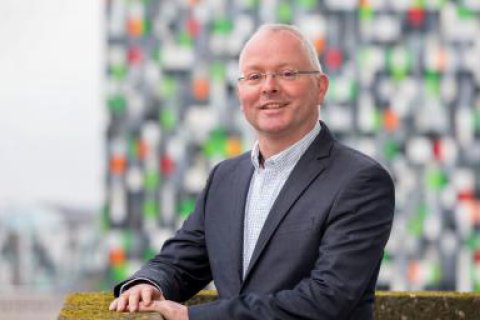A Hub for Molecular Immunology
Utrecht Molecular Immunology Hub

On 8 October 2018 the Utrecht Molecular Immunology Hub will officially kick off. Newly appointed researchers will start exciting new research projects. But in fact, the basis was laid months ago, tells Albert Heck, professor of Biomolecular Mass Spectrometry & Proteomics and initiator of the Utrecht Molecular Immunology Hub. “What happens when ambitious scientists from different faculties and departments meet and discover each other’s expertise, technologies and mutual interests”, asks Heck rhetorically. “They start exchanging their latest results and insights, provide access to their facilities and look for ways to mutually benefit from working together.”
Of course, that was exactly what Heck wanted to achieve. “At Utrecht Science Park I meet a lot of scientists because they knock on my door to use our mass spectrometry facilities. Like a spider in the the web, I vividly sensed the growing interest in immunology. Although we all work within a radius of one and a half kilometre, we are not always familiar with each other’s technologies and expertise. Regularly, I heard myself saying: you should talk to him or her. The interest in the immune system is the glue that connects them.”
What happens when ambitious scientists from different faculties and departments meet and discover each other’s expertise, technologies and mutual interests?
Fundamental research
The Utrecht Immunology Hub will have a strong basis in fundamental research, stresses Heck. We aim to unravel molecular details of our highly complex immune response to diseases and pathogens. This knowledge makes it possible to steer the system in a healthy direction. Societal impact will come from innovative vaccines and immunotherapies that can only be developed upon new discoveries.
During the first stage, the hub will tackle, as a proof-of-concept, three important health topics linked to immunology: 1). Drug-resistant ‘hospital bacteria’ (mostly Klebsiella pneumoniae), led by Suzan Rooijakkers, UMC Utrecht; 2). Development of novel T-cell based therapies against cancer, led by Jurgen Kuball, UMC Utrecht; 3). Improving vaccines for emerging zoonotic infections, led by Frank van Kuppeveld, UU Veterinary Medicine.
“These topics were chosen because of the emerging health hazards and the growing expertise in Utrecht.” A considerable part of the hub investments will be used to support access to some of the world-class technology infrastructures available at Utrecht Science Park, in for instance proteomics, light- and electron microscopy, vaccine development, glycomics and B-cell sequencing.
Future medicines
The Molecular Immunology Hub positions Utrecht in an excellent position to acquire additional funding for immunology research, thinks Heck. A Future Medicines Initiative is under construction and also a related NWO Gravitation programme which stimulates consortia of top researchers. At Utrecht Science Park we interact with many non-academic partners, such as Genmab, RIVM, NVI and Merus, to name a few, which will help to translate fundamental findings into therapeutic products beneficial for society.
Prof. Albert Heck
Biomolecular Mass Spectrometry & Proteomics
Faculty of Science

